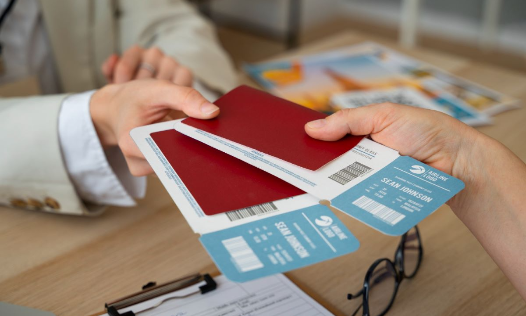Payment is being processed. Please do not refresh or close this page until your payment is complete.
 Book an Appointment
Book an Appointment

Indonesia is reviewing its controversial visa-on-arrival policy, which has increased travel costs for tourists, especially in Bali.
The policy, aimed at generating funds for sustainable tourism, may soon be scrapped for visitors from key countries.
Indonesia is reconsidering its visa-on-arrival policy, which has sparked significant debate among frequent tourists, especially in Bali. This move comes amid ongoing discussions to scrap the costly visa fees in a bid to boost tourism.
Background: Visa-Free Travel
Before the COVID-19 pandemic, Indonesia offered visa-free travel for up to 30 days to visitors from its top international markets, including Australia. This visa-free entry was a major draw for Bali, one of Indonesia’s most popular tourist destinations.
Current Visa-On-Arrival Requirements
Currently, tourists from 97 countries including popular destinations like Australia and China, must either pay for a visa on arrival or apply for an e-visa before entering Indonesia.
The visa-on-arrival costs IDR 500,000 (approximately USD 33) and is valid for 30 days, with a one-time extension allowed for an additional 30 days.
Since its introduction, this policy has been controversial, with frequent travellers to Bali voicing concerns over the increased costs.
The fee has contributed to the rising cost of vacations on the island, compounded by the IDR 150,000 per person Bali Tourism Tax Levy implemented in February 2024.
Discussions to Scrap Visa Fees
Earlier this year, Indonesia’s Minister for Tourism and Creative Economies, Sandiaga Uno, hinted at plans to eliminate the visa-on-arrival fee for the top 20 nations that contribute the most visitors.
This list includes Australia, China, the UK, the USA, India, and South Korea. While there were expectations for changes by October 2024, no official updates have been provided.
The proposed list of 20 countries to enjoy free visa access to Indonesia includes:
Challenges and Criticisms
The visa-on-arrival policy was initially implemented to generate funds for sustainable tourism development and to discourage what officials described as “low-quality” tourists.
Minister Uno has drawn comparisons to Bhutan’s exclusive tourism model, where tourists pay over USD 200 per day, coupled with strict visitor quotas.
However, the current visa-on-arrival fees have placed Indonesia in a challenging position. Critics argue that the fees are neither as exclusive nor as effective as Bhutan’s model, creating dissatisfaction among tourists without substantially boosting the island’s tourism sector.
Thailand Setting the Bar High
Thailand sets a high standard by extending its visa-free stay to 60 days, reflecting a forward-thinking strategy to attract more tourists. This move highlights Thailand’s commitment to boosting its tourism industry through visitor-friendly policies.
The Road Ahead: Still Under Discussion
Minister Uno confirmed the decision is on the President’s desk and no timeframe is set for implementation. The goal is to attract “qualified and sustainable tourist contributors” while promoting responsible tourism.
Apply for the e-Visa on Arrival (e-VOA)
Indonesia offers tourists a streamlined option to apply for the e-Visa on Arrival (e-VOA) online, making the process hassle-free and time-efficient. Here’s a step-by-step guide to applying for the e-VOA:
For help, check Indonesia’s Immigration Department on Instagram or use their live chat feature. The e-VOA is valid for 30 days, with a one-time extension allowed for another 30 days.
Final Words
Indonesia’s reconsideration of its visa-on-arrival policy aims to enhance its appeal as a top tourist destination. By potentially scrapping visa fees, the country hopes to attract more high-quality visitors and boost its global tourism ranking.
Source: https://travelobiz.com/indonesia-may-drop-costly-visa-on-arrival-fees-for-20-top-tourist-countries/